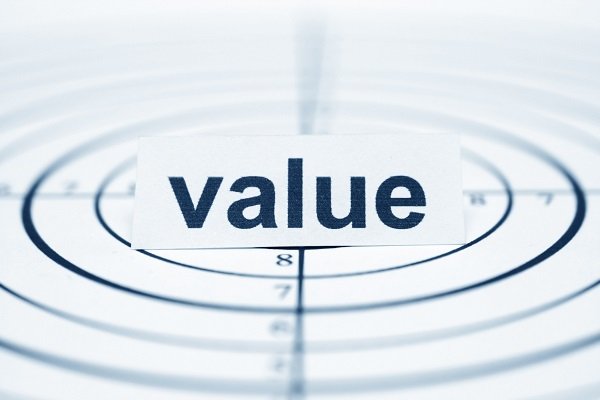
This week I have mostly been…. receiving irrelevant offers from Digital Marketers. Genuinely looking like off cuts from a long lost episode of the Fast Show, I have been offered a call to discuss “bringing online my Pharmacy chain via ecommerce websites”; a somewhat optimistic proposal to help with my 2021 travel plans; help in securing Interns; exclusive rights to sell medical devices in the UK and of course dozens of people offering to generate leads (in whatever I do), because let’s face it, lead generation is the same whether you are a multibillion dollar conglomerate or a single entity Sales Transformation Consultant. Or it is if you are offering lead generation services it would appear.
LinkedIn of course is awash with product brochures, some overt, others dressed up as White Papers (the info graphics are super good though), with either a huge emphasis on features and functions or that ubiquitous throw away stat of saving 20% of costs or generating an extra 10% in revenue as a result of prospects implementing their solution. As we all saw from a weekend Government broadcast a couple of weekends ago, presenting stats with no meaning or context can be pretty futile in supporting an underlying message, whatever it is you are trying to sell. Forget to add the specific “what’s in it for me?” message and there really is no value.
The issue today is that the latest lockdown has all but sealed the fate for many sales people: That Q4 deal ain’t happening anytime soon. Activity has slowed, projects are stalling. Lockdown 1 saw some projects accelerate as those balmy spring days imbued a sense of optimism with WFH being a real plus point for the majority. Fast Forward 8 months and Lockdown: the sequel is already dispelling any thoughts that there might be a Q4 boom for most sales teams. Sales Transformation is going to be a key driver in 2021 as many organisations seek to get back on track and deliver aggressive revenue growth plans.
For now, the key challenge facing all quota carrying members of our fraternity is
Why do something now that could conceivably wait until next year?
The key challenge then is understand the “2 whys”. Why do anything? And Why now? Let me help you with your Q4 Sales Transformation.
Value Based Selling entered the pantheon of sales frameworks well over 20 years ago. Some may even regard it as a methodology in its own right. However, as a former Chairman of one of my clients once told me, “it’s nothing new or innovative”. Absolutely. Even the most updated book on it dates from 2002, and yet it is still very relevant today sitting alongside MEDDiC, Miller Heimann, TAS, even Challenger, in terms of making a contemporary contribution to engaging with your clients in B2B sales.
We know that building relationships via video call is not easy, not least because we simply cannot get hold of the recipients despite their apparent omnipresence at the present time. In addition, a lack of resources is impacting the start of projects, both on selling and client sides. Sales people that have prospered in FY20 have done so, largely because of existing relationships.
As a reminder then, there are two key ways of building relationships:
Personal ones built on trust and personality – not quite ready to be assigned to the old school trash can as some commentators would have you believe, and
Differentiation via Value Creation
Establishing the Value Case
Essentially, we need to help our customers build a case to implement our project. Spookily, the reason they buy is rarely best price as many sales people on an opportunity review would have you believe, but because of best incremental value. Sure, solution fit is important, but let me level with you: There isn’t a huge amount of difference between Oracle and SAP; EMC and NetApp or Sage and QuickBooks/Xero/any other SME Accounting System. All of their corporate Go to Market Collateral material will try and convince you otherwise. Everybody provides “world class…world leading solutions to a global client these days. Agility is common as is compliance with ISO 27001. So there must be something else, what is it?
The emergence of the Value Professional
I was on a Zoom Seminar listening to some of the Tech industry’s Global CROs a couple of weeks ago. One talked about the rise of the value professionals. These are the super sales people who differentiate themselves from their peers. These are an elite group who manage to engender an empathetic feeling from their customers so that they are buying from you rather than being sold to.
Value professionals are not new, believe me. The term maybe new (to me at least!) but every sales team I have been lucky enough to work with over the past 20 years usually had several, in some cases all of them were. Value professionals understand the maxim that whilst the need to build value is paramount to their success, it is also a time consuming process. I’ve personally worked on opportunities that were 12 months in the making and witnessed quite a few others that were over two years from creation to close. There was a negotiation around costs as you would expect, but the common consideration was building a business case, jointly, with our customer using mutually agreed KPIs, in their language.
Customers now invest time with those demonstrating most value
Building a demonstrable value statement should be at the core of everything you do in sales. It starts from your Use Cases that underpin your Go to market strategy. If they don’t have hard, measured, tangible benefits, but focus on technology deliverables instead, bin them and start again. “Reduced costs by 20%” means nothing to me and sure as heck will probably mean nothing to your target customers either, who, in over 65% of cases, will be researching you before any conversation takes place. (Gartner).
Use cases should, ideally be co-written with your customers to become reference cases. They should incorporate the KPIs that you agreed to underpin the decision. There will have been an ROI payback, typically over 3 years. State what it was, most use cases can be extrapolated into detailed value statements if you ask the right questions. It is even possible to revisit that customer and ask them the relevant questions to elicit this information, even if it is after the fact and many months after the completion of their project. Benefit accrual will be an ongoing process anyway.
Customer alignment is essential
Once the campaign has began in earnest, building alignment is essential. The professional relationship will form because of an understanding of that customer’s issues and drivers. It is important to be able to align with both their personal and professional considerations. Social Media, especially LinkedIn, is a real modern gift to all aspiring sales people. Even if you don’t use Navigator (which should be mandatory) there is a whole data lake of information about your targets that should enable you to have meaningful conversations from the get go. I know you know this, so why do the majority of sales people still not do this?
As you circumnavigate your way through the decision making unit, ever more complex and now incorporating more than a dozen executives in some cases, you need to be building that business case with a myriad of different measures that are meaningful and relevant to all members of your DMU.
Prepare your “Champion” to support your project
Essentially, you are building a case to prepare your coach or if you genuinely have one, your champion, to win the business argument and secure a decision to do something, now. In one ERP organisation I led, we had a specialist team tasked with creating what is effectively a complex value statement for each opportunity over a given value. 80% of our business that year was influenced by the “Insight team”. Moreover though, our close rates on all medium to large transactions were at 100%. In another Systems based organisation, our business case included cost of ownership using discounted cash flows which of course our customers’ CFOs loved. It also reduced their space to negotiate price when we could demonstrate an ROI within 12 months and a project payback within 18 months! A recent CRO I spoke to suggested that their close rates had improved by 21% during the pandemic as a result of creating value statements for each deal.
Establishing demonstrable value for your customers should start the moment they read one of your blogs or look at your website, regardless of whether you are a small entity or a large Multi National Technology provider. If you are not doing this, there is a strong chance you will not even be considered for the initial shortlist of potential suppliers. Once you reach the procurement cycle and you become a “project” it is critical to build and agree the business case. The easiest option right now is to do nothing. The job of the Value Professional is to do just that: create compelling value for an early decision.
The most successful sales professionals stick to the process
It never ceases to amaze me how many sales people know this, but choose to ignore it. Your success in the coming months is dependent on following an approach that may not be that new or innovative. Coupled with more contemporary approaches, I would say Value Creation for your customers is the most compelling thing you can do right now. Its your best tool to alleviate the why do anything? why now? challenges.
I remember one “enlightened” VP of Sales in a CRM vendor catigating me for introducing Value Creation to the sales process of one particular arduous sales campaign. “We haven’t got time for that!” he said. “It will slow the deal down!”. It actually ensured we closed it and at the forecast value too.
As we know, not many sequels are very good (I am thinking of the crushing disappointment that followed The Matrix in particular) and this one isn’t going to be either. My Sales Advice would be to keep your nerve and stick to the process it will give you the best shot of navigating these exceptional times. They aren’t about to get better anytime soon.
DWSL provide Sales Transformation for your existing organisation or due diligence for one you are considering investing in. Using our structured methodology we quickly identify inhibitors to growth and work with you to deliver a prescribed plan of actions to enable your sales organisation to be best in class and meet your Revenue and EBITDA targets.



